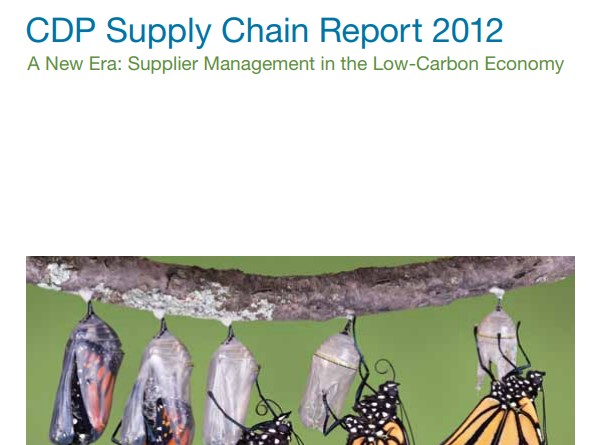
Submitted by admin on December 11, 2017
Companies yet to realize significant emissions reductions across their supply chains despite opportunity for cost savings, finds Carbon Disclosure Project and Accenture. Despite improving their own carbon performance, multinational companies are not yet demonstrating significant emissions reductions in their supply chains, according to the research published by Carbon Disclosure Project (CDP) and Accenture. The report on 49 CDP member companies, including L’Oréal, Philips and Wal-Mart, and more than 1,800 of their suppliers revealed that while 43% of responding companies have achieved year-on-year emissions reductions, only 28% of suppliers have done so.
A New Era: Supplier Management in the Low-Carbon Economy is CDP’s fourth annual global study of the preparedness of company supply chains for climate change impacts. The gulf between company emissions and those of their suppliers exists despite the fact that 39% of responding companies have realized monetary savings from their own emissions reductions activities and over a third (34.5%) of responding companies have benefited from new revenue streams or financial savings as a result of their suppliers’ carbon reduction activities.
The report reveals that leading businesses are changing their operating models. It shows a marked rise in the proportion of responding companies with climate change strategies that incorporate procurement guidelines (90%, up from 74% in 2009 and 79% in 2010) and that 67% of responding companies include carbon management in procurement policy.
The proportion of responding companies that claim they will deselect suppliers who fail to meet formal environmental criteria within five years has more than doubled from 17% in 2009 to 39% in 2011 and two thirds (63%) of responding companies are also investing in training their procurement staff in supply chain carbon management, a dramatic rise from 26% in 2009 and 41% in 2010.
Please find the CDP Supply Chain Report 2012 in the following link.





